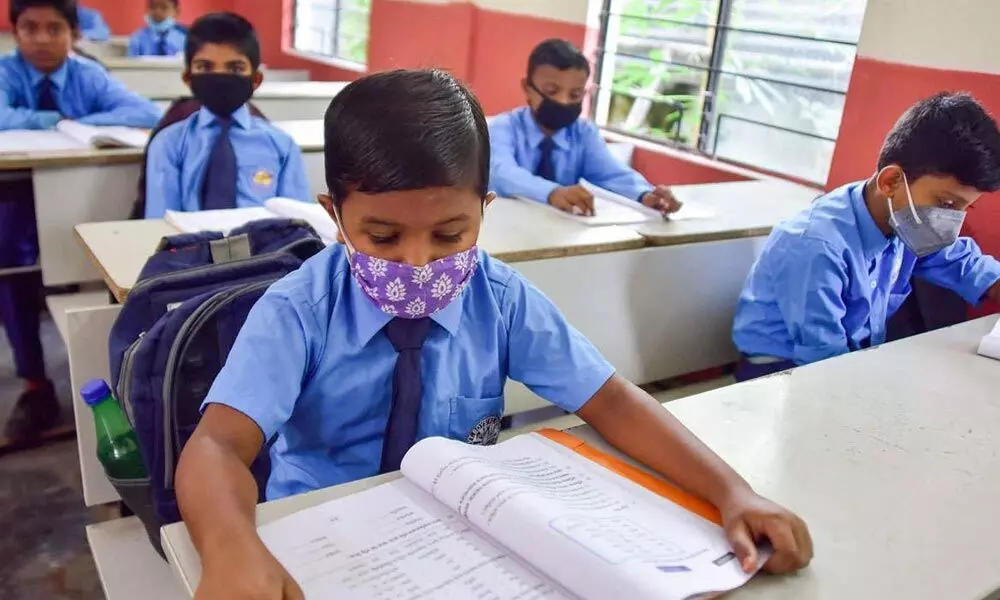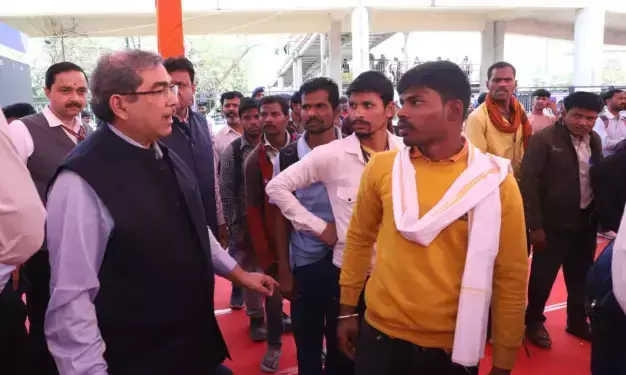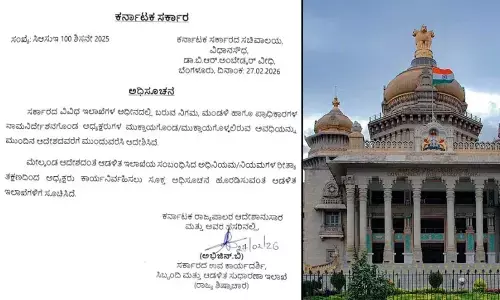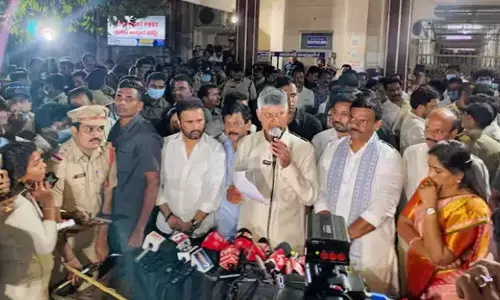Teacher education institutions functioning as 'commercial shops', finds study

Admissions in schools begin today(Representational image)
Azim Premji University released its new series titled ‘Issues in Education’ on Thursday which aims to bring into focus fundamental educational issues that are important for the improvement of the school education system in India
Bengaluru: Azim Premji University released its new series titled 'Issues in Education' on Thursday which aims to bring into focus fundamental educational issues that are important for the improvement of the school education system in India. The series aims to connect to the reality of education on the ground, which is often messy and defies both simplistic narratives of 'successes' or 'failures' and definitive conclusions.
The National Education Policy (NEP) 2020 reaffirms the central role of the teacher in education and emphasizes that teachers must be valued and empowered. This volume, in a set of four papers, brings together some of the most critical challenges that any education reform related to teachers and teacher education need to contend with now.
The first two papers in this volume study teacher education institutions. The NEP 2020 strongly underlines the need for rigorous teacher preparation in vibrant multi-disciplinary institutions. At the same time, the unregulated growth of private teacher education institutions has been observed to have had a debilitating effect on the overall teacher preparation system by many recent policy reports.
The paper 'Corruption in Private Teacher Education Institutions' reveals the presence of many sub-standard, dysfunctional teacher education institutions functioning as 'commercial shops'. A quantitative mapping of corruption in the form of violation of very basic institutional, curricular and programme parameters by private teacher education institutions (TEIs) across geographies shows that 26 out of 29 private TEIs studied do not have required number of teacher educators and adopt deliberate corrupt practices to hide this issue.
Most private TEIs in the study deliberately neglect basic curricular requirements that are committed by them to get the approval to run the programmes.Almost all allowed students with shortage of attendance to appear for examinations and more than 60% allowed students who had not completed their school internships to appear for examinations.
At least 70% had an average attendance of students that was below 80%. Most of these TEIs do not have basic instructional facilities: curriculum laboratories were not available in more than 50%; more than 30% did not have libraries, computer labs or seminar halls. Relatedly, the paper 'Mapping the Landscape of Teacher Education Institutions in India' reveals that of the 17,503 teacher education institutions in the country, more than 90% are privately-owned, stand-alone institutions, offering single programmes localized in certain geographies. "The dysfunctional Teacher Education system is at the core of India's problems in school education. Till we address this comprehensively, all efforts at improving the quality of our schooling is like treating the skin, while an aggressive cancer corrodes the body everywhere inside," said Anurag Behar, Vice Chancellor, Azim Premji University.
The third paper 'Neglecting Support for Teacher: Bane of our Public Education System' highlights some critical issues affecting the morale, motivation, and professional development of teachers – such as inadequate teachers in schools, continuous demands on their time from non-teaching activities, lack of opportunities for quality continuous professional development, and inadequate school-based mentoring support.
Another significant issue that has had damaging implications for the teaching profession, equity and children's learning is taken up in the fourth paper 'Contract Teachers in India – Current Trends, Issues and Challenges'. It reports on the continued and extensive prevalence of contract teachers across the country.










